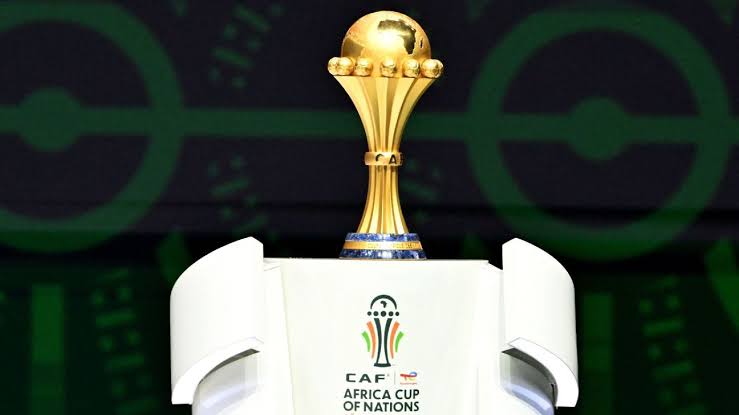On Thursday, the Federal Competition and Consumer Protection Commission (FCCPC) released a comprehensive report of allegations of deceptive branding and labelling practices against Coca-Cola Nigeria Limited.
According to the report, the investigation, which began in June 2019, uncovered significant issues with Coca-Cola Nigeria and its partner, the Nigerian Bottling Company (NBC), involving deceptive product packaging and inconsistent pricing strategies that misled consumers.
The probe began when the FCCPC alleged that Coca-Cola Nigeria had introduced a new variant of its popular Coke drink—“Coke Original Taste – Less Sugar” (Coke Less Sugar)—without adequately informing consumers or differentiating it from the original Coke.
The commission said the new variant was packaged almost identically to the original, creating confusion among consumers.
It said its investigation also revealed issues with the Limca lemon-lime flavoured drink, which appeared in two different formulations but with indistinguishable packaging, further compounding consumer deception.
The FCCPC also checked the allegations of varying product prices across different regions in Nigeria, which raised concerns about potential market dominance abuse.
The findings, released in late May 2023, painted a detailed picture of the companies’ alleged attempts to evade regulatory scrutiny and mislead consumers and the commission.
Nigerians need credible journalism. Help us report it.
PREMIUM TIMES delivers fact-based journalism for Nigerians, by Nigerians — and our community of supporters, the readers who donate, make our work possible. Help us bring you and millions of others in-depth, meticulously researched news and information.
It’s essential to acknowledge that news production incurs expenses, and we take pride in never placing our stories behind a prohibitive paywall.
Will you support our newsroom with a modest donation to help maintain our commitment to free, accessible news?
Branding and Labeling
The FCCPC’s investigation focused on four products produced by the companies concerning two flavours – Coke Original & Coke Less Sugar and limca lime-lemon flavour (2kcal) & limca lime-lemon flavour (53kcal).
The commission said Coca-Cola Nigeria had introduced Coke with less sugar and packaging almost identical to the original Coke, creating the potential for consumer confusion.
Also, Limca, another NBC product, was found to have two distinct variants—one lemon-lime and the other with a slightly different flavour—both sold in identical bottles with the same brand design and National Agency for Food and Drug Administration and Control (NAFDAC) registration numbers. It said the lack of differentiation misled consumers into believing that both products were identical.
In September 2019, the FCCPC said it identified these misleading labelling practices and began scrutinising Coca-Cola Nigeria’s and NBC’s branding strategies.
The commission’s report highlighted that these practices violated several sections of the Federal Competition and Consumer Protection Act (FCCPA) and NAFDAC regulations, which require clear and accurate product information.
Investigation
The FCCPC said the investigation involved a thorough review of documentary, visual, and audiovisual evidence.
The Commission said it conducted site visits to the NBC plant and held multiple meetings with company representatives.
In August 2019, the commission said it visited NBC’s Abuja plant to assess the situation firsthand. Subsequent meetings in June 2020, February 2023, and June 2023 provided further insight into the companies’ practices and responses.
On 21 September 2020, the FCCPC approved a new packaging design for Coke with less sugar to distinguish it from the original Coke. Despite this approval, Coca-Cola Nigeria failed to implement the changes and discontinued the original PET variant of Coke while offering it only in can form. This move was seen as an attempt to circumvent regulatory requirements and perpetuate consumer confusion.
In February 2023, the report noted Coca-Cola Nigeria reintroducing Coke Original in PET bottles using designs previously rejected by the FCCPC.
The commission said it discovered that these designs were used for production before receiving official approval, demonstrating a deliberate disregard for regulatory directives.
Throughout the investigation, the FCCPC alleged that it found that Coca-Cola Nigeria and NBC provided misleading or false information to the commission, adding that despite the commission’s directives, the companies continued to use deceptive packaging for their products.
FCCPC said the reintroduction of Coke Original with the problematic designs after being explicitly instructed otherwise was seen as a blatant attempt to mislead the commission and undermine regulatory oversight.
“NBC again misled the Commission when at the meeting of 6th February 2023, NBC falsely informed the Commission that it had not applied the proposed brand designs to any of its products which were already in the market prior to presenting same to the Commission for approval.
“That Coca-Cola Nigeria, on at least one occasion, misled the Commission, in violation of Section 112 of the FCCPA, when at the meeting of 6th February 2023, it falsely informed the Commission that the proposed design it presented to the Commission for approval were not already in use on products circulating in the market,” it said.
Market dominance
The FCCPC also investigated Coca-Cola Nigeria’s pricing practices, which varied significantly across different regions. Although the commission said it found some evidence of irregular pricing patterns, particularly in Ebonyi State, the data was insufficient to conclusively demonstrate an abuse of market dominance.
The commission acknowledged that multiple factors influence pricing and indicated that further investigation might be necessary to fully assess whether Coca-Cola Nigeria’s pricing strategies constituted excessive pricing.
The FCCPC’s report concluded that Coca-Cola Nigeria and NBC had engaged in practices that violated consumer protection laws.
The companies were found to have misled consumers through deceptive branding and labelling, failed to implement approved packaging changes, and provided false information to the commission, it said.
The FCCPC said that while there were concerns about pricing practices, more evidence is needed to determine if there was an abuse of market dominance.
Support PREMIUM TIMES' journalism of integrity and credibility
At Premium Times, we firmly believe in the importance of high-quality journalism. Recognizing that not everyone can afford costly news subscriptions, we are dedicated to delivering meticulously researched, fact-checked news that remains freely accessible to all.
Whether you turn to Premium Times for daily updates, in-depth investigations into pressing national issues, or entertaining trending stories, we value your readership.
It’s essential to acknowledge that news production incurs expenses, and we take pride in never placing our stories behind a prohibitive paywall.
Would you consider supporting us with a modest contribution on a monthly basis to help maintain our commitment to free, accessible news?
TEXT AD: Call Willie - +2348098788999



















 English (US) ·
English (US) ·